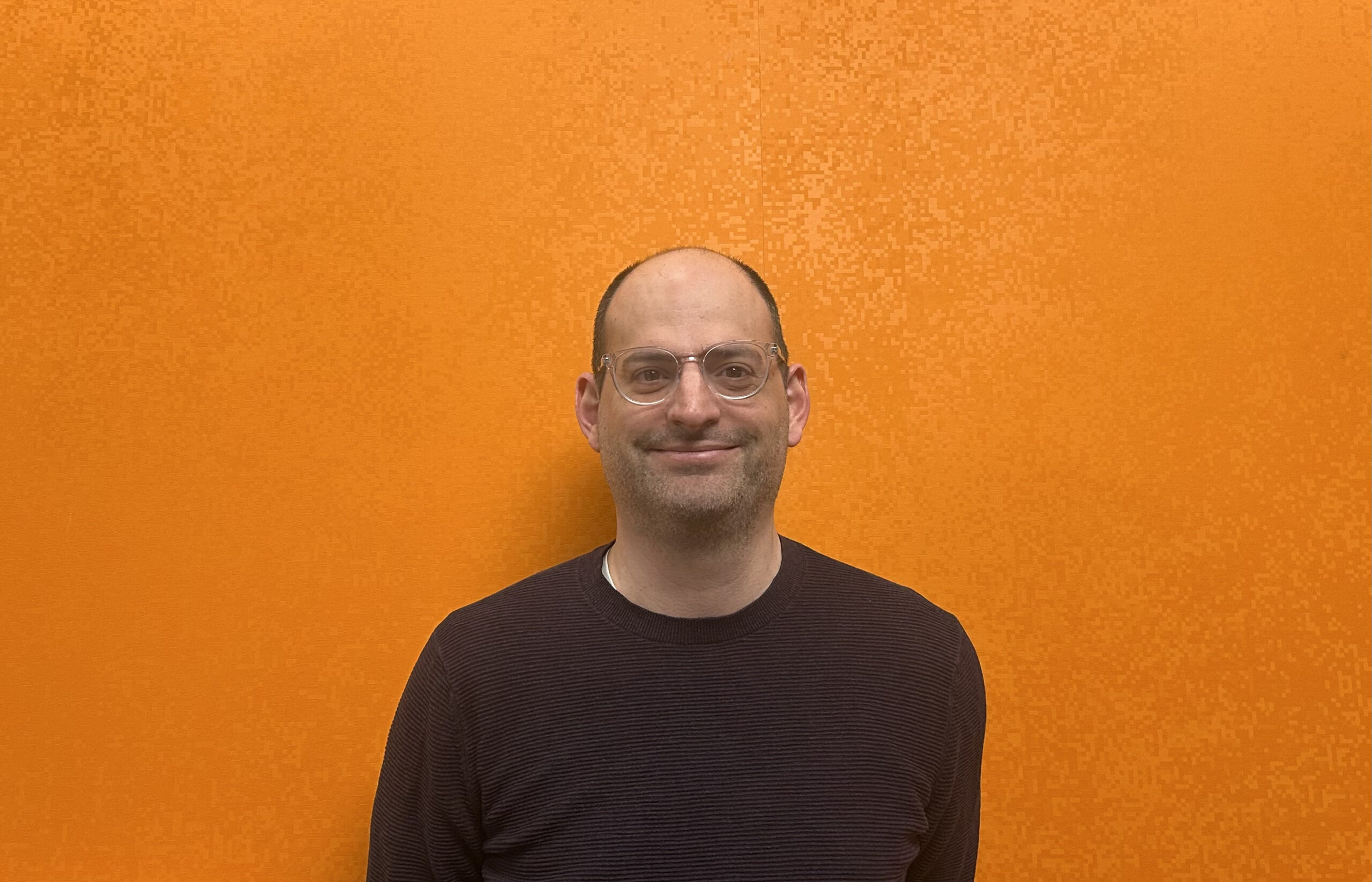For Gen Z students at Montclair State University, mental health is a daily conversation, woven into their friendships, Instagram captions and classroom discussions. But for many of their Gen X parents, mental health was either minimized or misunderstood, leading to generational tensions that still linger.
Dr. Gabriel Rubin, a justice studies professor who has interviewed dozens of Gen Z students about their experiences with mental health, talks about these differences in perspectives.
“Gen Z, by leaps and bounds has normalized mental health and taken the stigma away that very much existed in Gen X,” said Dr. Rubin. “When Gen X went to college, very few people even used mental health services. It just wasn’t something you talked about.”

Dr. Gabriel Rubin, justice studies professor. Photo by Alyssa Balerio Photo credit: Alyssa Balerio
Dr. Rubin explained that many Gen Xers were raised by baby boomers who encouraged independence, sometimes to the point of neglect. This could result in Gen X becoming overprotective “snowplow” parents, smoothing every obstacle in their kids’ paths.
“The issue with this parenting style is that it does not allow a kid to become independent,” Rubin said. “It’s hard to grow up when you’re never allowed to fall.”
Students today feel the weight of these differences. Sophie Sukhun, a freshman film and TV major, said that while her mother is “very attentive” about mental health, there are still cultural gaps.
“Older generations find it normal to suppress emotions rather than lash out,” Sukhun said. “Our generation is trying to avoid that cycle.”

Sophie Sukhun, freshman film and TV major. Photo by Alyssa Balerio Photo credit: Alyssa Balerio
Gaisha Methelus, a freshman psychology major who grew up in a Haitian household, said mental health simply “wasn’t a thing” for her parents.
“If you say you’re depressed, they say you’re ungrateful,” Methelus explained. “They just don’t understand.”

Gaisha Methelus, a freshman psychology major on her way to class. Photo by Alyssa Balerio Photo credit: Alyssa Balerio
The struggle isn’t just emotional — it’s also economic. Dr. Rubin pointed out that Gen Z faces an uphill battle with college debt, rising living costs and a job market that doesn’t offer the same stability Gen X once found.
“Young people have the least money and are getting hit the hardest,” Dr. Rubin said. “Parents who say ‘I bought a house at your age’ don’t realize that house now costs a million dollars.”
Sukhun explains how social media contributes to the generational divide among youth.
“Social media brings you down,” Sukhun said. “People try to project a lifestyle that’s perfect and it raises envy and jealousy.”
Sarah Francois, a freshman biology major, felt similarly about social media.
“Even if you know it’s fake, seeing people your age with a house or traveling makes you feel like you’re falling behind,” Francois said.

Sarahlyna Francois, freshman biology major. Photo by Alyssa Balerio Photo credit: Alyssa Balerio
Dr. Rubin emphasized that while social media is often blamed for Gen Z’s mental health struggles, it may not always be the case.
“Economic issues, problems with parents, school shootings, climate change — these are real, structural issues,” Dr. Rubin said. “I think it’s very reductionist to say that the phone is the only factor.”
Despite these tensions, Dr. Rubin remains optimistic for Gen X parents as they’re learning from their own children.
“Gen X parents are learning from their kids,” Dr. Rubin said. “Destigmatizing mental health helps everyone. I have friends who never would have talked about it, but now they do because their kids normalized it.”
Still, there are gaps that need to be met. Students like Methelus and Francois wish their parents would “take it easy” on them instead of pressuring them to meet impossible standards.
“Sometimes, just asking how your child’s day was could make a difference,” Francois said.
In the meantime, Gen Z students are finding ways to take care of themselves. Francois said she finds comfort in praying, writing songs and going for walks.
“Doing little things like being alone and reflecting helps a lot,” she said.
Sukhun echoed the importance of hobbies. She turns to painting, sketching and reading when she feels overwhelmed.
“Sometimes I just need to step away from my phone and let myself breathe,” she said.
Dr. Rubin noticed this shift as well. He said many Gen Z students have embraced more solitary, reflective hobbies, a trend he partly attributes to the COVID-19 pandemic.
“It’s funny. You ask students now what their hobbies are and they’ll say knitting, painting, reading, activities people used to associate with being stuck inside a hospital,” he said.
Many students turned inward, learning how to manage stress through creativity and solitude — something older generations didn’t experience in the same way.
For now, Gen Z is doing the hard work of unlearning silence and building a future where mental health is not a taboo, but a shared language — often one painted, sketched or written into existence.



